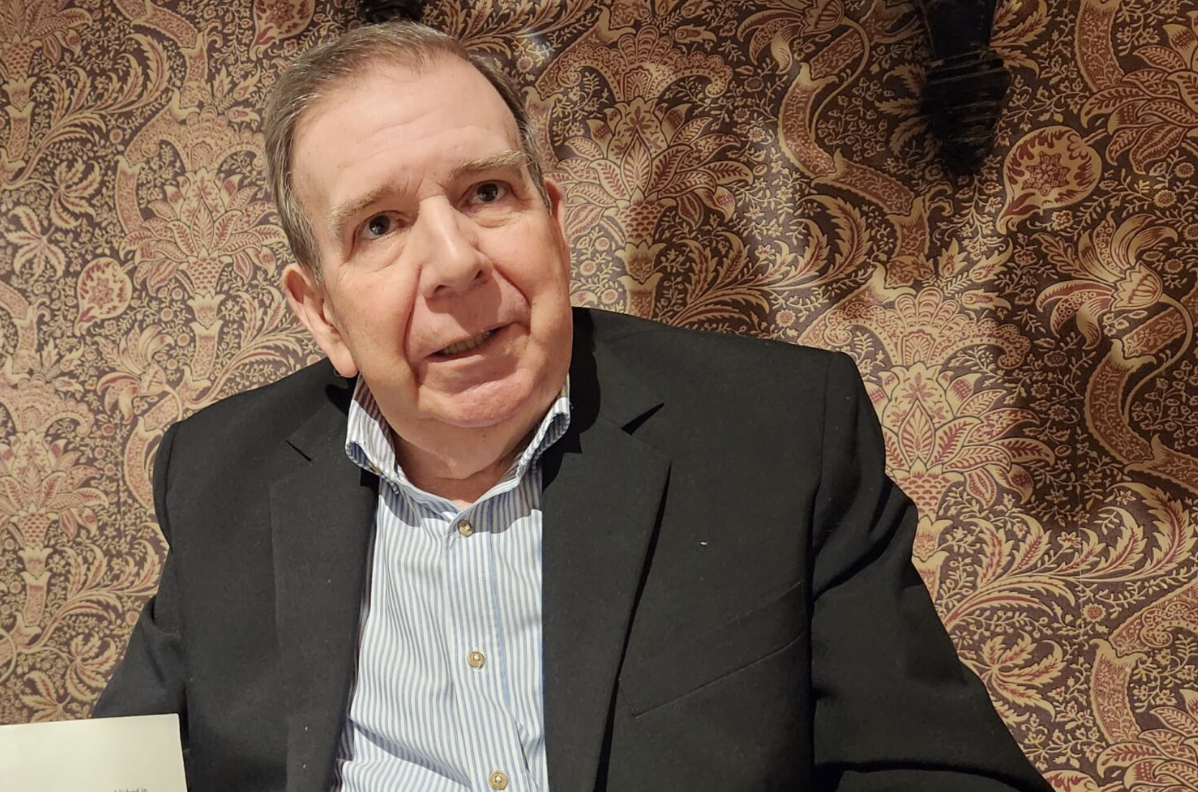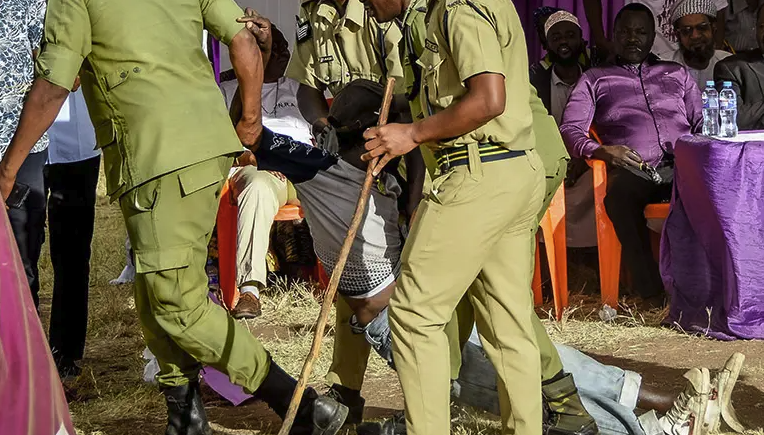News
The Man Who Should Be President
“I feel like I am in a golden jail, even though Spain has given me shelter”.

Edmundo González, a veteran Venezuelan diplomat turned politician, ran for the opposition Unitary Platform in his country’s July 2024 election. By all accounts – save that of the government-controlled election commission – he won, easily.
The election was a test, not only of the impartiality of internal institutions but also of international ones. Most democratic countries recognised González as the winner and rejected the official results, while autocracies including Russia, China, Iran, North Korea, and Cuba did not.
That the South African Communist Party and the Congress of South African Trade Unions were among those that welcomed the judgment by the Supreme Court of Venezuela, which unsurprisingly confirmed the victory of the incumbent, offers a hint of the limited view some hold of democracy.
“By confirming President Nicolas Maduro’s re-election as free, fair and credible,” read the SACP statement, “Venezuela’s Supreme Court has dealt a blow to US-led imperialist interference.”
Never mind the blow it dealt to the hopes of the majority of 30 million Venezuelans, eight million of whom are now forced to live in exile, away from the ‘socialist paradise’ at home, in the process becoming the second-largest refugee population worldwide after Syria.
Such is the cost of an economy which has been in free-fall for more than a decade.
No rule of law
Absent the rule of law and guarantees for investors, oil production has declined from 3.5 million barrels per day in 1999 to 800,000 today. Per capita income has gone down three times to around $4,000 in the last ten years. The effects are devastating for the vulnerable. “My pension is now just $3 per month,” says Ambassador González, 75: one effect of hyperinflation, the Bolivar having lost 14 noughts as it has been constantly rebased this century.
In exchange for signing a document “under coercion” declaring Maduro, as president, González was allowed to leave Venezuela on 7 September 2024, having spent nearly two months in the sanctuary of the Dutch and Spanish embassies. An arrest warrant had been issued, charging him with manufactured offences including “usurpation of functions, falsification of public documents, instigation to disobey the law, conspiracy and association.”
González stood as president only when his friend and colleague, Maria Corina Machado, was prevented from running. She is now in hiding in Venezuela.
A calm, approachable, and genial man who served his country in the UN and as Ambassador to Algeria and Argentina, González was born in relatively humble circumstances in La Victoria, about 90kms from the capital, Caracas, to a shopkeeper and a schoolteacher. He is a product of an education system now largely destroyed by the populists. “I went to a public primary and secondary school, to a public university, and then, on a state scholarship, to complete my Master’s at American University in Washington DC.”
Now, the man who should be Venezuela’s president lives in exile in Spain, waiting for news of his son-in-law, kidnapped by Maduro’s security forces, while he contemplates the right moment to return to Caracas to bring democracy back to a country which been subjected to a “Bolivarian revolution” since 1999 under, first, the former soldier Hugo Chavez took over power and, since his death from cancer in 2013, Maduro, the bus driver turned president.
According to the official results, Maduro won the 2024 election by 52% to 41%. The government has failed to publish any evidence to support its alleged victory, saying that its official results had been “corrupted by hackers”. Contrastingly, the opposition ran a parallel voter tabulation system that unequivocally shows González won by nearly 40 percentage points with over 67% of the vote. “If the exiled Venezuelans had been allowed to vote, it would have been over 80%,” he wryly observes.
In the words of fellow Venezuelan opposition leader, Leopoldo Lopez, also exiled to Madrid having spent six years in imprisonment: “The elections results are clear, impossible to hide, Edmundo won by a landslide. While Maduro is imposing his fraudulent results by force, repression and fear, every single democratic government, regardless if it’s from the right or left, should recognize the people’s will and Edmundo González as President,” says the founder of the World Liberty Congress.
Win big
It’s long been clear that oppositions have to “win big” to wrest power from incumbents in authoritarian democracies. That was a lesson learnt well, for example, by Hakainde Hichilema in Zambia, when he won an overwhelming victory over Edgar Lungu in August 2021 on his sixth attempt.
González was underestimated by Maduro, being seen by the Venezuelan president as, in the words of one regional diplomat, “just a diplomat, which is why he let him run. That was,” he says, “a miscalculation”.
He also underestimated the power of organisation and the extent to which the Bolivarian leadership had alienated the public. González led a very effective team which developed a monitoring system which made it impossible to rig the election, given the scale of the victory. Thousands of volunteers succeeded in gathering not less than 83% of the tallies at 30,000 voting stations and transmitted these to a central facility.
Six months before the election María Corina Machado announced the creation of the “600K” network which refers to the 600,000 volunteers they hoped to recruit. “I ask you to set up your own campaign command with Venezuela, in every house, in every workshop, in every school, in every church … in every space where you and your people organise. We will have thousands and thousands of campaign commands,” she said in a video.
The volunteers, including monitors, drivers and cooks along with data and IT specialists, were trained at 5,000 workshops across Venezuela. It was a giant logistics operation estimated to involve ultimately as many as one million people. Activists were trained in the use of an app to report delays or irregularities at polling stations and to scan and transmit the QR code on every tally.
The scanned results were uploaded to a website. Not only did the opposition know that it needed to win, and ‘win big’, but also to prove that it won.
Stolen election
But then, since he couldn’t rig the election, Maduro simply stole it, supported by friendly authoritarians abroad.
In his inauguration speech, Maduro said, apparently without a hint of irony: “I swear that this new presidential term will be one of peace, prosperity, equality and new democracy. I swear it by history, I swear it on my life. I will keep my word.”
Never believe the politician who swears he is telling the truth.

No-one but his fellow travellers can believe such claptrap. Certainly not Edmundo González, who since his departure on a Spanish Air Force plane from Caracas has been touring the world to rally international support. He keeps a handwritten ledger of all his trips this year; nearly 60,000 air miles and 60 days abroad in Europe and the Americas.
The Maduro government has in response issued a warrant offering a $100,000 reward for information leading to his arrest.
But the affable Ambassador has no regrets, save about the arrest of his son-in-law, about which no news has been received since his abduction on 7 January. His daughter, a university professor, and two granddaughters have preferred to remain behind in Caracas in the circumstances.
At least 1,200 opposition activists were arrested in the election’s aftermath. “When coming from a post-election rally my security said: ‘Boss, they are coming for you’,” recalls González. “But opportunities,” he reminds, “knock on the door only once. If you don’t open it, you lose.”
González does not overestimate what the international community could do. He is careful not to call for sanctions, perhaps realising how this might be used against him by the Maduro regime. Stamina remains his strongest weapon, along with the nature of the regime itself.
Limited
González’s options are limited. In the words of one leading member of an international organisation, “I feel he may need to risk it all and return to Venezuela. He will die but ignite change. Once he agreed to his name being on the ballot, he has to take it to the end.”
More easily said than done, especially if you are the person doing the doing. At the same time, self-sacrifice is the ultimate quality of leadership.
Maduro not only lacks a plan to repair Venezuela’s broken society, but the legitimacy to do so. This will eventually, too, infect those who continue to support his rule, despite – and probably because of – the brazenness with which he and the Chavistas stole this election.
The man-who-should-be-president’s message for African oppositions facing the same situation is one of local empowerment rather than expecting change to come from outside. “We have to keep the international community engaged. But I am for isolation [of the regime] rather than sanctions,’ says Edmundo González. “The problem has to be solved by Venezuelans even if the international community can play a role.”
Dr Mills interviewed Ambassador González in Madrid.
This article originally appeared on the Daily Friend


